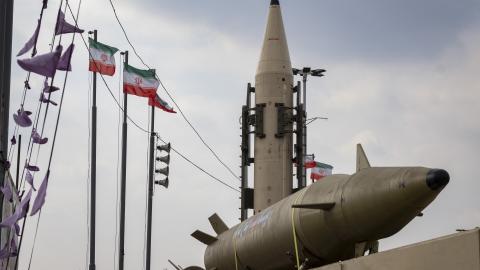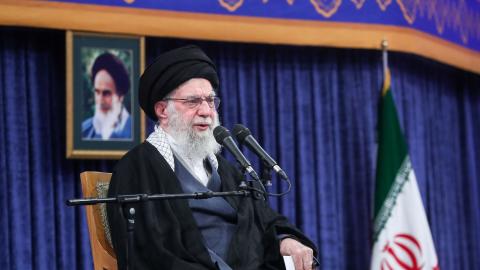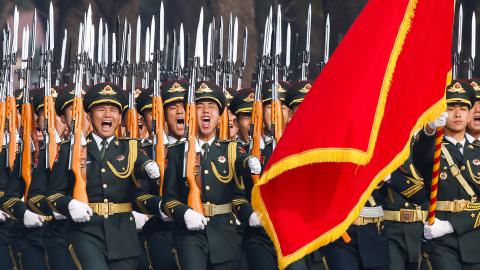As 2017 drew to an end, the media missed one of the biggest news stories of the year: the persecution of Christians around the world.
According to a groundbreaking new report, “Persecuted and Forgotten? A Report on Christians Persecuted for Their Faith 2015-2017,” published by Aid to the Church in Need, Christian persecution is growing worse in virtually every nation.
The report states Western governments “failed to offer Christians in countries such as Iraq and Syria the emergency help they needed as genocide got underway.”
Had Christian relief organizations and other institutions not stepped in to help, the report says, “the Christian presence could already have disappeared in Iraq and other parts of the Middle East.”
A highly readable, country-by-country survey, the report focuses on the world’s worst persecutors of Christians. And it begins with a sobering statement: “In almost all the countries reviewed, the situation for Christians has declined since 2015 as a result of violence and oppression. This is especially significant given the rate of decline in the immediate run-up to the period under review. The one exception is Saudi Arabia, where the situation was already so bad it could scarcely get any worse….”
In 12 of 13 countries, it reports, believers are enduring intensifying dangers. The report’s carefully abridged maps and graphs are especially helpful.
During the 2015-17 period, “Christians have suffered crimes against humanity: some were hanged or crucified, others raped, some kidnapped and never seen again.” The report offers tragic personal accounts to help document these realities.
The report gives special attention to persecution in 13 countries: China, Egypt, Eritrea, India, Iran, Iraq, Nigeria, North Korea, Pakistan, Saudi Arabia, Sudan, Syria, and Turkey.
Aid to the Church in Need is a Catholic organization providing pastoral and humanitarian assistance around the world.
According to the report, since 2014 international humanitarian reporting has concentrated on the Islamic State (ISIS) and its genocidal massacre of Christians, Yazidis, and other minorities. Meanwhile, the plight of Christian believers in other parts of the world has, at times, been unintentionally overshadowed.
North Korea and China are prime examples.
We’ve all heard about the North Korean nuclear threat. But the communist regime there also radically rejects Christianity. In fact, according to many sources including Open Doors’ World Watch Report, it remains the worst persecutor of Christians on earth.
In the “Persecuted and Forgotten” report summary, we learn that North Korea’s Christians “…are routinely sent to political internment camps where they experience extra-judicial killing, torture, starvation, forced abortion and sexual violence.” There are also “reports of faithful being hung on crosses over a fire and others being crushed under a steamroller.”
China, North Korea’s neighbor — another atheistic Communist regime — continues to persecute Christians who refuse to bow the knee to the Maoist State. In recent months, the government has amplified its hostility, tearing crosses off church buildings and demanding that Christians remove religious images from their homes and replace them with a portrait of President Xi Jinping.
Increasing numbers of Christians also are being locked-up in China’s notoriously brutal prison system.
Persecution also rages on the continent of Africa. The report offers a shocking eyewitness account from Eritrea, formerly part of Ethiopia, where Christians are reportedly locked up in hundreds of political prisons in the most squalid conditions.
“Prisoners cry out to be dead,’ said one source, ‘and go crazy because of the torture they receive. The oppression of the regime against the [non-registered] Christians is merciless.’”
Nigeria is another African trouble-spot. Many recall the 2014 kidnapping of hundreds of mostly-Christian girls by ISIS-affiliate Boko Haram. But the report also spotlights brutal attacks on Christians by bands of rogue Fulani tribesmen.
“Rising Fulani attacks have seen Christian villages devastated and many killed,” the report says. “Church reports indicate local government and military collusion in the murder of Christians….”
Among the cited countries, India and Turkey may initially seem out of place. Although India is not often listed as a “worst” persecutor, it has long retained a record of religious violence. Today, however, thanks to Prime Minister Narendra Modi’s nationalistic Hindu agenda, India has moved up the oppression/persecution scale from “high” to “high-to-extreme.”
Turkey, likewise, has earned a “moderate-to-high” persecution designation due to its intensifying Islamism as aggressively propagated by Muslim strongman President Recep Tayyip Erdogan.
One bright hope shines in the report: The gradual rebuilding of Christian towns and villages in Northern Iraq. The situation is far from rosy and many obstacles block the way, but believers are slowly — and cautiously — returning to their devastated towns and villages, where they yearn to preserve and revitalize their ancient, 2,000-year-old Christian heritage.
The Aid to the Church in Need report is heartbreaking, but much needed. Speaking as one who has researched, studied, and written about Christian persecution for decades, its invaluable information is most certainly welcome.
Melkite Greek Catholic Archbishop Issam John Darwish eloquently articulates the proper Christian response to the religious persecution.
“Where we see our brothers and sisters hungry, thirsty, or naked we must minister to them,” says the Archbishop, “and so minister to Our Lord Jesus Christ himself.”


















